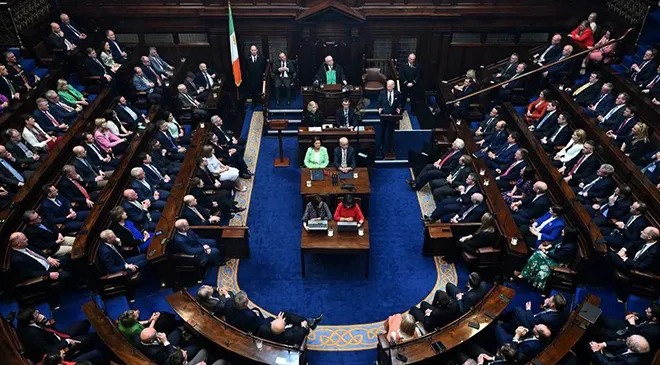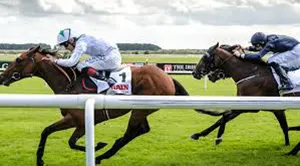 April 24th saw a Dáil Éireann (Irish Lower House) debate on whether the pre-watershed ban on gambling adverts included in the Gambling Regulation Bill 2022 should no longer apply to charities. As reported by the Irish Times’ Harry McGee, a full exemption was proposed by the Opposition, but this amendment was ultimately rejected via vote.
April 24th saw a Dáil Éireann (Irish Lower House) debate on whether the pre-watershed ban on gambling adverts included in the Gambling Regulation Bill 2022 should no longer apply to charities. As reported by the Irish Times’ Harry McGee, a full exemption was proposed by the Opposition, but this amendment was ultimately rejected via vote.
Minister of State at the Department of Justice James Browne’s own proposal of enforcing a cap on the max wins of charity draws that could be promoted prior to the watershed was also defeated. This threshold stood at €10,000, and had politicians moved forward with the amendment, only adverts surrounding charity-related gambling where the max win exceeded €10,000 would have been prohibited between 9:00 pm and 5:30 am.
The Gambling Ad Prohibition Could Harm the GAA and Charities
 Among those who spoke in favour of completely lifting the ban when it came to the charity sector was Pearse Doherty, spokesman of the Sinn Féin political party, who engaged in a heated debate with Mr Browne.
Among those who spoke in favour of completely lifting the ban when it came to the charity sector was Pearse Doherty, spokesman of the Sinn Féin political party, who engaged in a heated debate with Mr Browne.
Deeming the section of the bill as pertaining to charities “problematic,” Mr Doherty argued that the full ad prohibition would “crush the fundraising ability of local organisations” and that it would have a negative impact on both clubs belonging to the Gaelic Athletic Association (GAA) and charities that could not adhere to the €10,000 limit. He gave the North West Hospice as an example, seeing as a €20,000 win was the maximum reward of a charity lottery organised by the hospice. He continued, pointing out that rewards such as houses and cars were among the rewards of various GAA clubs and that local clubs would no longer be able to advertise the said draws to their communities under the bill. He further stressed that such draws would “not be possible” and even claimed that the GAA would be unable to organise annual draws.
As reported by The Irish Times, however, Mr Browne was firmly against the idea of a complete exemption. He emphasised that the bill’s €10,000 limit would only concern how the draws were promoted, not their existence or reward selection as a whole.
Sinn Féin, Mr Browne stressed, was proposing for charities to be fully exempt, and he pointed to a core issue that would arise should the sector indeed be allowed to not adhere to the advertisement section of the gambling bill: it would effectively make charities completely unregulated when it came to gambling. This, Mr Browne argued, would lead to “a Wild West Scenario” where various bad actor entities would pose as charities to take advantage of the bill “without regulation, without limitation, or accountability.” Mr Browne did not neglect to underscore that the protection of children from gambling ads was at the forefront of the watershed bill.
Many Have Identified Issues with the Gambling Regulation Bill 2022
 Charities are not the only concern of those opposed to various aspects of the Gambling Regulation Bill. Bookmakers, the horse racing industry, and broadcasters have been particularly vocal about their views on the prohibition of gambling ads. The ban would make it difficult to justify the broadcasting of Irish horse racing given the associated costs, television and radio networks have argued, while the members of the horse racing sector have expressed worries that the ban would result in cuts to funding and job losses.
Charities are not the only concern of those opposed to various aspects of the Gambling Regulation Bill. Bookmakers, the horse racing industry, and broadcasters have been particularly vocal about their views on the prohibition of gambling ads. The ban would make it difficult to justify the broadcasting of Irish horse racing given the associated costs, television and radio networks have argued, while the members of the horse racing sector have expressed worries that the ban would result in cuts to funding and job losses.
Earlier this month, the industry even proposed a significant compromise wherein a 24-hour gambling advert ban would replace the current watershed section of the bill. The catch would be that horse racing channels requiring a subscription would be excluded from this ban.
However, while speaking with the Irish Times on Wednesday, Mr Browne said that the bill has remained largely unchanged regardless of the industry’s lobbying efforts.
- Author


